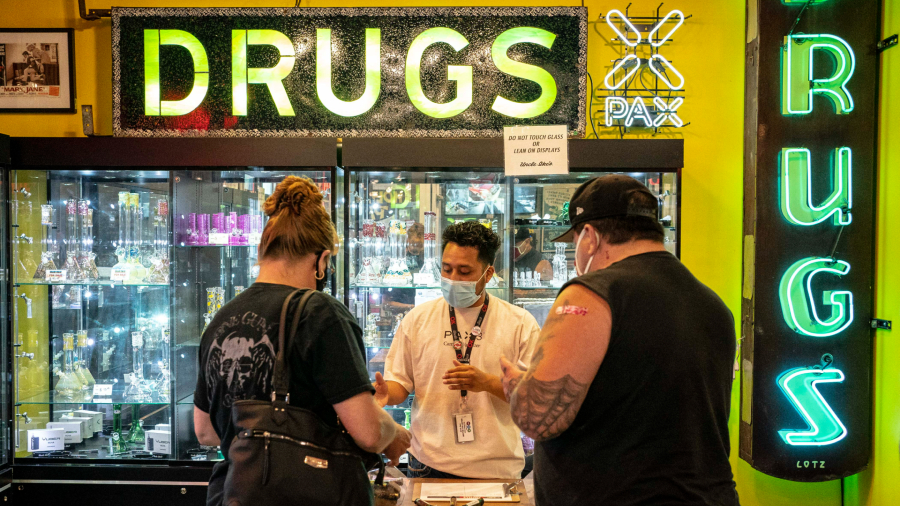State suggests cashless apps for cannabis stores to avoid robbery
Apr 25, 2022, 6:04 PM | Updated: Feb 7, 2024, 2:15 pm

(Photo by David Ryder/Getty Images)
(Photo by David Ryder/Getty Images)
Last week, the Washington State Liquor and Cannabis Board and Washington State Department of Financial Institutions published a list of cashless phone apps and transfer services that cannabis retailers can use for customer payments, in lieu of cash. The list also included banks and credit unions that would provide services to pot shops.
Because pot is federally illegal, cannabis retailers usually cannot take credit or debit cards. This reliance on cash alone has made them a target for armed robberies, which have spiked this year — including a robbery in Tacoma that saw an employee murdered.
However, not all cannabis retailers were optimistic about the cashless apps.
‘High’ frequency in armed robberies at pot shops in Puget Sound region
Kevin Heiderich, co-owner of House of Cannabis in Tacoma, Twisp, and Tonasket, appreciates the state’s effort to try to help curb robberies, but he does not believe this list of money transfer services will make much of a difference.
“The way these companies conduct business with their favorite cannabis store is pretty expensive for the cannabis store,” Heiderich said.
What people may not realize, he said, is that each of these apps charges significant fees per transaction. A 4% fee may not seem like much, but a business’ profit margin might only be 8%.
“If they’re coming in to buy $4 joints on 4-20, that’s a problem,” said House of Cannabis co-owner Mike McDonald.
Heiderich said if you add that fee onto expenses like B+O taxes, hiring armed guards for $30,000 per month to deter robbers, and the money that cannabis retailers are losing in those robberies, and it is a tough business to make a profit in.
“That [fee] eats into what is a relatively thin profit margin for cannabis businesses to begin with — taking as much as somewhere between 20 and 50% of their profit margin on an average transaction,” Heiderich said.
But Brian Smith, communications director for the Liquor and Cannabis Board, pointed out that fees are a given in the world of business.
“What we are hearing is that most fees are about 2.5% to 3.5% per transaction … To put it in perspective, if these businesses were accepting credit and debit cards, they’d be paying their Visa and debit card fees as well, upwards of 4%,” he said. “It’s just a cost of doing business.”
He added, “Government can’t solve all of their problems. I mean there are things, they’re going to have expenses, that they are going to need to be able to do.”
Smith said it is worth it if using cashless apps helps cannabis retailers get away from cash, and thus avoid a dangerous and costly robbery.
“If all the businesses did something like this, it would decrease the amount of cash in the system and everyone would be on a level playing field,” he said.
In the meantime, to help with the robbery issue, Smith says the board has had roundtables with pot shop owners, financial institutions, legislators, and other stakeholders. They talked about having a security analyst who can provide help and advice to shops. Smith said they also have had law enforcement give security tips to business owners.
Heiderich and McDonald are not opposed to the idea of cashless apps, and they said that they are considering using some of the apps offered on the DFI list.
Ultimately, however, House of Cannabis wants pot shops to be allowed to use use credit and debit cards like any other store.
“We call it legal, but it’s not,” Heiderich said. “This is decriminalization and taxation. We need to go the distance.”
State government leaders, along with the LCB, are currently advocating for Congress to pass the SAFE Banking Act so that cannabis shops can take cards instead of having to rely on cash.













